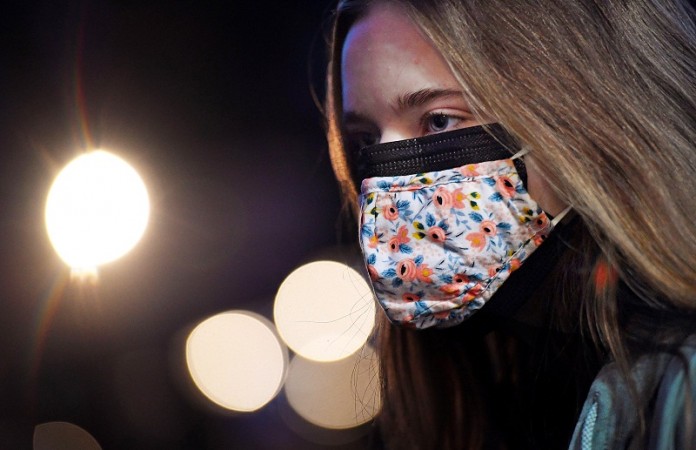
The research published in the journal JAMA Internal Medicine, shed light that the reason for the enhanced filtration is not so much adding layers of cloth, but eliminating any gaps or poor-fitting areas of a mask. Therefore, wearing two tightly-fitted face masks can nearly double the effectiveness of filtering out SARS-CoV-2-sized particles, preventing them from reaching the wearer's nose and mouth and causing Covid-19.
"The medical procedure masks are designed to have very good filtration potential based on their material, but the way they fit our faces isn't perfect," said Emily Sickbert-Bennett, an associate professor at the University of North Carolina (UNC) in the US, and lead author of the study.
To test the fitted filtration efficiency (FFE) of a range of masks, the team filled a 10-foot by 10-foot stainlesssteel exposure chamber with small salt particle aerosols. The researchers wore a combination of masks to test how effective they were at keeping particles out of their breathing space. Each individual mask or layered mask combination was fitted with a metal sample port attached to tubing in the exposure chamber that measured the concentration of particles entering the breathing space underneath the researcher's mask.
A second tube measured the ambient concentration of particles in the chamber. The researchers determined the FFE by measuring particle concentration in the breathing space underneath the mask compared to that in the chamber. According to their findings, the baseline FFE of a mask differs from person to person, due to each individual's unique face and mask fit. Generally, a procedure mask without altering the fit, is about 40-60 percent effective at keeping Covid-19- sized particles out, the researchers said. A cloth mask is about 40 percent effective, they said.
Research reveals older adults more willing to help others as compared to younger ones
Fulfill Your Desire To Wear Premium Clothes With International Clothing Brand Rico Desgaste
Ayush Manraj, A kind and generous Lifestyle influencer